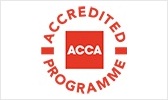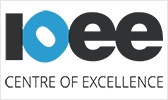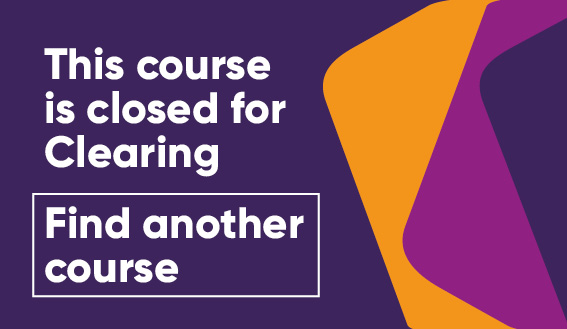Overview
The MSc Accounting and Finance has been designed to provide an academic route to your continuing professional development and enhance your career opportunities. You may also choose to further your academic research.
Join us to extend your professional qualifications. Enhance your ability to think strategically about management and organizational change, within accounting and finance.
Make an investment into your long-term career at one of the best Business Schools in London. Take the opportunity to deepen your knowledge in a specialised field with real-world relevance, all in a multicultural environment which fosters global perspectives and expands your professional network.
This course explores contemporary and specialized approaches in accounting and finance. The ever-changing legal framework in which the financial sector operates, combined with the latest developments in accounting and reporting, call for key practical, theoretical, and empirical issues to be further analysed through further academic research.
You will have access to prestigious resources, such as the Bloomberg computer suite, to analyse company and industry data from companies and organisations across the world.
This qualification is designed for learners who wish to pursue a career in the financial services industry, professional accountancy, banking, and finance or management. Learners will be equipped with the essential skills and knowledge needed to pursue high-level careers in all types of organizations in the public and private sector and within industry and commerce, both in the UK and abroad.
We’re top 3 for research intensity in Accounting and Finance among London Modern Universities (Complete University Guide 2021).
Accountancy College of the Year- Public Sector
PQ Magazine 2017, 2018 and 2019 awards
ACCA and CIMA exemptions
ACCA Exemptions
On completion of the course, you will be on a fast track to becoming ACCA qualified, and exempt from the following modules:
Business and Technology
Management Accounting
Financial Accounting
Corporate and Business Law
With completion of the specific LSBU modules, you will get following further exemptions:
| LSBU module | ACCA module exemption |
|---|---|
| Financial Reporting (BAF-7-FRE) | F7 - Financial Reporting |
| Audit Risk (BAF-7-AUR) | F8 - Audit and Assurance |
| Corperate Financial Management (BAF-7-CFM) | F9 - Financial Management |
https://www.accaglobal.com/uk/en.html
CIMA exemptions
On completion of the course, you will be eligible for the master’s gateway route. The Master’s gateway route is an accelerated entry route to the CIMA Professional Qualification and the individuals are required to take the CIMA Gateway Exam, and get all 11 exemptions from certificate, operational and management level exams after successfully passing the CIMA Gateway Exam.
| ModeFull-time | Duration12 months | Start dateSeptember | Application code5972 | Application method Direct to LSBU |
| ModeFull-time | Duration15 months | Start dateJanuary | Application code5973 | Application method Direct to LSBU |
| ModeFull-time (with Internship) | Duration24 months | Start dateSeptember | Application code5974 | Application method Direct to LSBU |
| ModeFull-time (with Internship) | Duration27 months | Start dateJanuary | Application code5975 | Application method Direct to LSBU |
Location
London South Bank University student union is located at 103 Borough Rd, London SE1 0AA.
If you are visiting our Southwark Campus, you may wish to use our downloadable campus map (PNG File 466 KB). For information on accessibility, see our DisabledGo access guides. See our location page for more details.
Entry Level Requirements
The MSc Accounting and Finance program at London South Bank University (LSBU) is designed for graduates with a strong foundation in business, accounting, or finance, aiming to build upon their existing knowledge and skills to prepare for a career in accounting and finance-related fields.
The program also welcomes applicants from less directly related disciplines with professional qualifications or relevant professional experience, who demonstrate a keen interest and aptitude for the programme.
- A bachelor's degree in economics with at least a lower second-class honour (2.2) or a related discipline such as finance or business with at least an upper second-class honour (2.1).
- Graduates holding a bachelor's degree with an upper second-class honour (2.1) in less directly related disciplines, such as engineering, mathematics, or other fields, may also be considered on a case-by-case basis by the course management team.
- Non-relevant degree holders with at least a 2.2 honours and relevant work experience in financial services will be evaluated individually.
- Completion of the Fundamental Level (Knowledge and Skills) of the ACCA examinations.
- Completion of the Operational and Management levels of CIMA examinations.
- Other relevant professional qualifications, including those obtained overseas.
English Language Requirements:
IELTS 6.5 or above
Choose your country
Select country here:
Missing English and Maths qualifications?
If you do not have the required English and Maths qualifications needed to satisfy the entry requirements for this programme, we have courses available at our partner College that you can take to upskill in these areas. Find out more at South Bank College.
Course status
Accreditation and Course validation status
This course is validated by London South Bank University. Applications are being accepted.
United Kingdom
£12190
Tuition fees for home students
International
£18090
Tuition fees for international students
Tuition fees are subject to annual inflationary increases. Find out more about tuition fees for Undergraduate or Postgraduate courses.
-
Full-time
full-time
MSc Accounting & Finance (JAN) (FT) - Year 1
UK fee: £11000 International fee: £16900 AOS/LSBU code: 5973 Session code: 1FS00 MSc Accounting & Finance (SEPT) (FT) - Year 1
UK fee: £11000 International fee: £16900 AOS/LSBU code: 5972 Session code: 1FS00 MSc Accounting & Finance (with Internship) (JAN) (FT) - Year 1
UK fee: £12190 International fee: £18090 AOS/LSBU code: 5975 Session code: 1FS00 MSc Accounting & Finance (with Internship) (SEPT) (FT) - Year 1
UK fee: £12190 International fee: £18090 AOS/LSBU code: 5974 Session code: 1FS00
For more information, including how and when to pay, see our fees and funding section for postgraduate students.
See our Tuition Fees Regulations (PDF File 391 KB) and Refund Policy (PDF File 775 KB).
Possible fee changes
The University reserves the right to increase its fees in line with changes to legislation, regulation and any government guidance or decisions.
The fees for international students are reviewed annually and the University reserves the right to increase the tuition fees in line with the RPIX measure of inflation up to 4 per cent.
Postgraduate loan (PGL) for Masters study
If you are starting a Masters course, studying either full- or part-time, you may be entitled to apply for a postgraduate study loan. Find out more at our postgraduate fees and funding section.
Scholarships
We offer several types of fee reduction through our scholarships and bursaries. Find the full list and other useful information on funding your studies on the scholarships and fee discounts page.
Fee status
Please check your fee status and whether you are considered a Home, EU or International student for fee-paying purposes and for our regulatory returns, by reading the UKCISA regulations.
International students
The course is not currently open to international students.
International (non Home) applicants should follow our international how to apply guide.
Home
| Mode Full-time | Duration 12 months | Start date September | Application code 5972 | Application method Direct to LSBU |
| Mode Full-time | Duration 15 months | Start date January | Application code 5973 | Application method Direct to LSBU |
| Mode Full-time (with Internship) | Duration 24 months | Start date September | Application code 5974 | Application method Direct to LSBU |
| Mode Full-time (with Internship) | Duration 27 months | Start date January | Application code 5975 | Application method Direct to LSBU |
Postgraduate students and research students should apply through our dedicated application system. Full details of how to do this are supplied on our How to apply section for postgraduate students and our How to apply section for research students.
See our admissions policy (PDF File 1,043 KB) and complaints policy (PDF File 516 KB).
Accommodation
Students should apply for accommodation at London South Bank University (LSBU) as soon as possible, once we have made an offer of a place on one of our academic courses. Read more about applying for accommodation at LSBU.
Finance
It's a good idea to think about how you'll pay university tuition and maintenance costs while you're still applying for a place to study. Remember – you don't need to wait for a confirmed place on a course to start applying for student finance. Read how to pay your fees as a postgraduate student.
Prepare to start
We help our students prepare for university even before the semester starts. To find out when you should apply for your LSBU accommodation or student finance read How to apply tab for this course.
Enrolment and Induction
Enrolment takes place before you start your course. On completing the process, new students formally join the University. Enrolment consists of two stages: online, and your face-to-face enrolment meeting. The online process is an online data gathering exercise that you will complete yourself, then you will be invited to your face-to-face enrolment meeting.
In September, applicants who have accepted an unconditional offer to study at LSBU will be sent details of induction, which is when they are welcomed to the University and their School. Induction helps you get the best out of your university experience, and makes sure you have all the tools to succeed in your studies.
Read more about Enrolment and Induction.
Suggested reading
- Alexander,Britton and Jorissen. (2011). International Financial Reporting & Analysis.5th edition. South Western - Cengage Learning.
Hillier, D, Ross S. A., Westerfield R. W., Jaffe J., Jordan, B. (2011). Corporate Finance, European Edition,McGraw-Hill.
Cottrell S. (2005). Critical Thinking Skills: Developing effective analysis and argument, Palgrave MacMillan, New York, New York, USA.
You could also read background material on:
- International Financial Reporting Standards
- Financial Analysis
- Look at the on-line annual report of a FTSE 100 company.
You could visit the following websites to read current issues in International Banking, Investment and Finance
- www.economist.com
- www.liffe.com
- www.marketeye.co.uk
- www.bankofengland.co.uk
- www.imf.org
- www.cme.com
- www.yahoofinance.com
- www.bloomberg.co.uk
- www.ftse.com
- www.globalinvestor.com
- www.fsa.gov.uk
- www.isda.com
The MSc Accounting and Finance program is carefully designed to provide a contemporary perspective in the subject areas of accounting and finance, informed by scholarship and research. Ethical judgement, strong analytical abilities, effective reporting, and adaptability are some of the skills and attributes developed throughout this course, to help students develop careers in industry, public sector, or research.
Core modules
- Advanced Audit and Assurance (20 credits)
Equip students with the knowledge and practical skills required to formulate, design, plan and carry out an external audit or assurance engagement, and to explain the nature and purpose of the external audit process and its application in the context of the professional regulatory framework. - Strategic Leadership and Management (20 credits)
Progressively broadens and deepens students’ knowledge, skills, and ability to apply financial management techniques, financial accounting analysis, and forecasting when making strategic decisions, implementing, or evaluating strategy. - International Finance and Investment (20 credits)
Explores international financial markets, investment strategies, and provides a comprehensive knowledge of portfolio selection principles, especially when considering modern challenges such as ESG factors. - Corporate Financial Management (20 credits)
Provides insights into corporate finance, including investment analysis, capital structure, and financial risk management, crucial for strategic financial planning and management. - International Financial Reporting (20 credits)
A module where students develop skills in the comprehension and application of accounting standards to the preparation of financial statements, as well as an understanding of contemporary theoretical issues. - Research Methods (20 credits)
Preparing students for their capstone project, this 20-credit core module covers various research methodologies and techniques essential for business analysis. - Capstone Project (60 credits)
A significant, 60-credit core module allowing students to apply research methods and other tools and techniques to a given business topic, with emphasis on improving aspects of business processes and/or practice.
Facilities
Specialist industry software prepares our students with the digital skills that employers' value. Students on our programmes have access to Bloomberg, SAGE, FAME, NVivo, and SPSS.
Read more about LSBU Business School's specialist facilities and software.

Careers
Employability Service
At LSBU, we want to set you up for a successful career. During your studies – and for two years after you graduate – you’ll have access to our Employability Service, which includes:
- An online board where you can see a wide range of placements: part-time, full-time or voluntary. You can also drop in to see our Job Shop advisers, who are always available to help you take the next step in your search.
- Our Careers Gym offering group workshops on CVs, interview techniques and finding work experience, as well as regular presentations from employers across a range of sectors.
Our Student Enterprise team can also help you start your own business and develop valuable entrepreneurial skills.
The MSc Accounting and Finance course at LSBU is designed to equip students with the skills and knowledge necessary to chart successful career paths in accounting and finance as well as allowing flexibility to work within other industries.
Graduates may become fully qualified Chartered Certified Accountants, Financial Analysts, Auditors or Tax Consultants. They may also explore roles in Corporate Finance, Risk Management, Investment Banking, or Financial Advisory Services, locally or internationally
.
The curriculum is deeply entrenched in contemporary accounting and finance issues, thus providing a solid foundation for further study, including PhD programs.
LSBU alumni have advanced to positions within prestigious firms and institutions, underlining the program's strong employability focus.
Accreditation
Students who complete their modules will be well-prepared to sit the Strategic Business Reporting, Advanced Audit and Assurance, and Strategic Business Leader, all ACCA strategic level papers.
This would be in addition to exemptions for ACCA’s fundamental papers, i.e., Financial Reporting (F7), Audit and Assurance (F8), and Financial Management (F9).
Furthermore, graduates of this course will be well-equipped to take on the CIMA Gateway exam, the successful completion of which leaves 4 papers only to complete at strategic level:
- Strategic level’s 3 objective tests: Strategic Management (E3), Financial Strategy (F3), and Risk Management (P3)
- Strategic level’s case study exam

- The Association of Chartered Certified Accountants (ACCA) was founded in 1904; the ACCA is the global body for professional accountants offering the Chartered Certified Accountant qualification
Teaching and Assessment
Teaching and learning
You will benefit from the department's experienced lecturers, excellent learning materials, and small class sizes. Workshops, seminars, case studies and student-led discussions facilitate more active modes of learning. You'll receive training in the use of Stata and Bloomberg during seminar sessions and in the development of assignments.
The delivery modes and class types are comprised of a variety of online, face-to-face tutorials, and seminars, heralded by discussions of relevant and current accounting and finance issues and practice.
Personal Tutoring
As a postgraduate student in the Business School, your personal development and wellbeing is very important to us, so we have developed a personal tutoring system that is tailored to your individual and group needs.
Firstly, you will be allocated a personal tutor who will be available to you on a 1:1 basis as well as facilitating group personal tutoring sessions, designed to enhance your academic and personal development within your postgraduate degree programme.
Our personal tutoring motto is that we want you to "Achieve, Succeed & Excel".
Personal Tutoring
As a postgraduate student in the Business School, your personal development and wellbeing is very important to us, so we have developed a personal tutoring system that is tailored to your individual and group needs.
Firstly, you will be allocated a personal tutor who will be available to you on a 1:1 basis as well as facilitating group personal tutoring sessions, designed to enhance your academic and personal development within your postgraduate degree programme.
In addition to an allocated personal tutor, there will also be a personal tutor available ‘on call’ in a designated room, called ‘Talk’, for confidential 1:1 pastoral care meetings every day of the academic semester from 9am to 8pm. This personal tutor can be seen by appointment or within a few minutes in order to assist you with any concerns that you may have.
Our personal tutoring motto is that we want you to "Achieve, Succeed & Excel".





